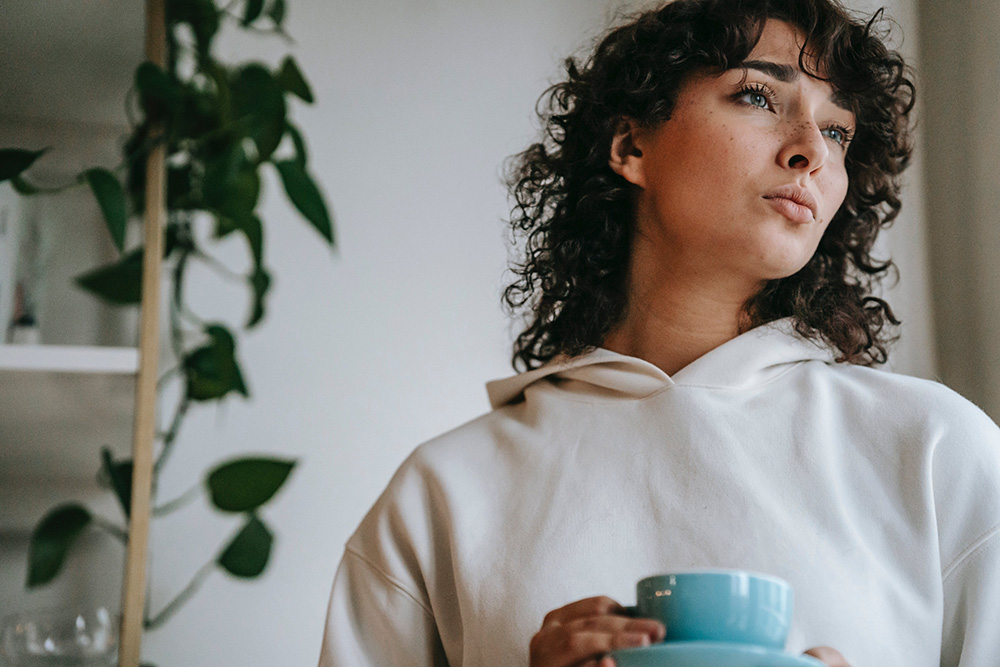Mindfulness
Mindfulness can be defined as “paying attention, on purpose, moment by moment, without judging” (Full Catastrophe Living – Jon Kabat-Zinn).

What is mindfulness?
This is practiced through developing awareness of our thoughts, feelings and physical sensations, without self-judgement and criticism. Learning to tune in to what is going on in our mind and body, through engaging in regular meditation practice and awareness during day to day activities, can increase our resources to cope better with stress, difficulties and illness.
“A central theme of mindfulness practice is to let go of striving and trying to make things different to the way they are. Instead we are invited to be open to the full range of emotional states available to human beings. By learning to be open to and go towards difficulty, it becomes possible to cultivate new ways to respond to the unwanted.”
Jody Mardula

The benefits
Becoming attuned to the present moment can help us enjoy the world around us and understand ourselves better. In this way we can come to experience afresh things that we have been taking for granted.
It can help us to:
- Stay in touch with the present moment and our surroundings and be less caught up in negative thoughts.
- Deepen our awareness and respond more skilfully to events in our life.
- Reduce anxiety, depression and stress and maintain wellbeing.
- Cope better with pain and physical health difficulties.

How can I be more mindful?
Mindfulness is not only a kinder attitude towards ourselves, others and everyday life, but also a skill that requires practice. It is helpful to set aside regular time for a formal mindfulness practice.
Mindfulness meditation can involve sitting silently and paying attention to thoughts, sounds, the sensations of breathing or parts of the body, and gently bringing our attention back whenever the mind starts to wander. Mindful movement and stretching can also enhance physical and mental wellbeing.
In addition to these more formal mindfulness practices we can bring mindful awareness into our daily life, by taking moments to pay attention to our breathing or our need for a pause. We may choose a daily activity such as taking a shower or listening to a work colleague, and fully focus our attention on it.

Try the TalkPlus mindfulness audio meditations

Breathing Space
TalkPlus mindfulness audio meditations have been created to provide you with the help you need with your mental wellbeing at any time or day that suits you. You may have been directed to this page by your therapist or you may have found this website via a search engine. Whichever it is, we hope you find these MP3s informative and helpful.

Body Scan Meditation
TalkPlus mindfulness audio meditations have been created to provide you with the help you need with your mental wellbeing at any time or day that suits you. You may have been directed to this page by your therapist or you may have found this website via a search engine. Whichever it is, we hope you find these MP3s informative and helpful.

Mindfulness of the Body & Breath
TalkPlus mindfulness audio meditations have been created to provide you with the help you need with your mental wellbeing at any time or day that suits you. You may have been directed to this page by your therapist or you may have found this website via a search engine. Whichever it is, we hope you find these MP3s informative and helpful.

Sounds & Thoughts Meditation
TalkPlus mindfulness audio meditations have been created to provide you with the help you need with your mental wellbeing at any time or day that suits you. You may have been directed to this page by your therapist or you may have found this website via a search engine. Whichever it is, we hope you find these MP3s informative and helpful.
How does TalkPlus offer mindfulness?
Mindfulness may be part of individual therapy, including CBT or specific mindfulness-based therapies.
An 8-week Mindfulness-based Cognitive Therapy course for those who are recovering from depression, anxiety or are dealing with longer-term health conditions and pain. This is a closed group and aimed at those who want to develop their practice at a more consistent pace whilst experiencing the mutual support of other participants. The course is in-person, face-to-face..


